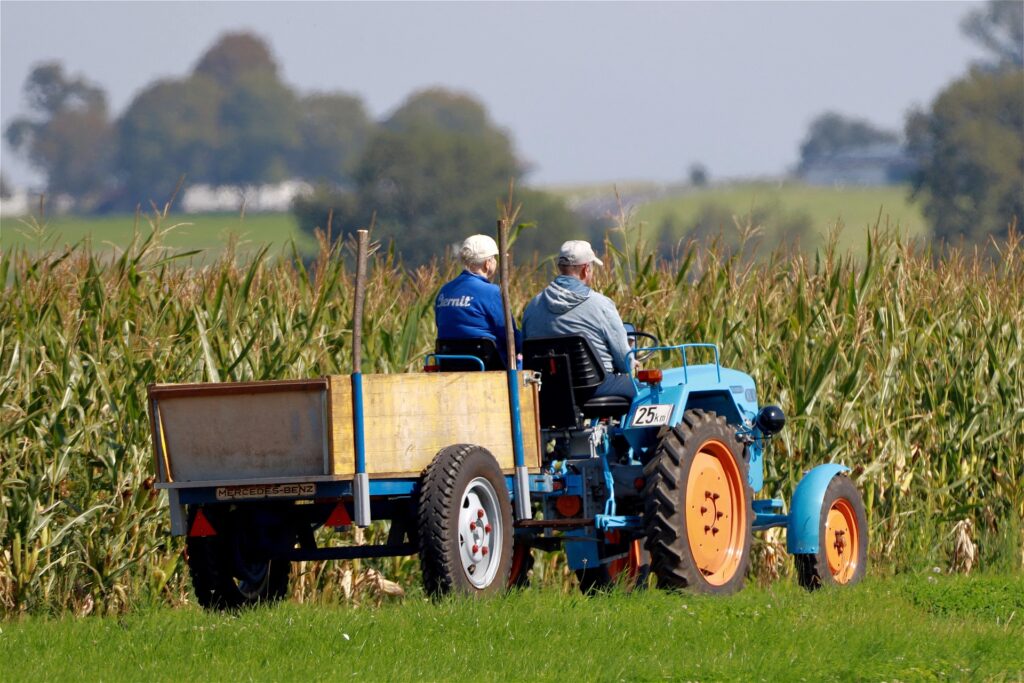America Needs a Farm Policy in Tune with World Trends
This article originally appeared at Klaus Mager’s substack.
Agriculture Secretary Brooke Rollins recently criticized the European Union’s ban on hormone-treated U.S. beef, labeling the EU’s scientific rationale as “fake science” and asserting that it unfairly harms American farmers and ranchers. This adversarial stance in international trade disputes risks straining vital relationships and overlooks the evolving preferences of global consumers.
it is imperative for U.S. agricultural policies to prioritize and invest in the domestic cultivation of specialty crops. By doing so, the nation can reduce its import dependence, strengthen local economies, and enhance the resilience of its food systems against external shocks.
Market Realities and Global Preferences
Around the world, consumer preferences are shifting decisively toward food that is organic, grass-fed, and sustainably produced. In Europe, Asia, and even among discerning U.S. consumers, there is growing skepticism toward industrial agriculture’s reliance on synthetic hormones, GMOs, and chemical inputs. Yet, the USDA continues to double down on defending and promoting these controversial products, ignoring clear signals from global markets. This disconnect is not just ideological—it’s economic. By insisting on exporting products that many countries have rejected on environmental and health grounds, the USDA is fueling unnecessary trade disputes, eroding trust, and forfeiting valuable market opportunities for American farmers who are ready and willing to meet the demand for clean, regenerative food.
Principles and EU Regulations
The European Union’s regulatory framework is grounded in the Precautionary Principle—a commonsense ethic that places the burden of proof on those introducing new technologies or substances to demonstrate their safety before they are allowed into the market. This contrasts sharply with the U.S. approach, where harmful products are often presumed safe until proven otherwise, leaving the burden on injured consumers to establish harm. The ongoing legal battles surrounding Bayer-Monsanto’s glyphosate-based herbicides, and the company’s efforts to avoid liability for cancer claims, exemplify this deeply flawed system. Even more troubling is the ethical breach posed by Bayer-Monsanto’s lobbying efforts to force these same controversial products into European markets, where they are rightly banned under stricter food and environmental safety laws. This strategy not only undermines democratic policy-making in the EU, it reflects a troubling disregard for sovereignty, public health, and consumer trust.
Climate Crisis
As the climate crisis accelerates, agriculture must transition from being a major contributor to becoming a central solution. Regenerative practices—focused on building soil health, increasing water retention, and restoring ecosystems—are essential not only for long-term food security but also for reversing the degradation of hydrologic cycles that underpin regional climates. The science is clear: healthy soils store more carbon and water, reduce erosion, and foster resilience to drought and flood. Yet, instead of accelerating support for these proven strategies, the USDA has recently frozen or even rolled back funding for climate-smart agriculture programs. This is not just a bureaucratic misstep—it is a moral and strategic failure. At a time when farmers need support to adopt regenerative methods, and when the world is watching for U.S. leadership on climate, these decisions undermine both planetary health and America’s credibility.
Health and Nutrition
There is an undeniable connection between industrial farming practices and the rising tide of chronic disease. Decades of chemical-intensive, yield-maximizing agriculture have led to food that is calorie-rich but nutrient-poor—fueling epidemics of obesity, type 2 diabetes, heart disease, and diet-related cancers. The U.S. public health data is sobering: over 40% of American adults are obese, and nearly 1 in 10 now has diabetes. These are not just lifestyle issues—they are systemic failures tied directly to how and what we grow. The degradation of soil biology through industrial practices leads to crops with diminished micronutrients, undermining human resilience and immune function. It’s time for agricultural policy to reflect the reality that food is medicine. Instead of protecting the status quo, we must align policy with the growing public demand—for clean, nutrient-dense, ethically produced food that supports both human and planetary health. Global markets are already moving in this direction. U.S. leadership should follow.
USDA Priorities and Funding
Some Solutions
Imported Specialty Crops
A critical yet often overlooked aspect of U.S. agriculture is its increasing reliance on imported specialty crops, particularly fruits and vegetables. Currently, the United States imports approximately 60% of its fresh fruit and 40% of its fresh vegetables, with a significant portion originating from Mexico and Canada.
This heavy dependence on foreign sources for essential food items is paradoxical, given the vast and diverse agricultural resources available domestically. Beyond economic implications, this reliance poses a national security risk, as disruptions in international supply chains—whether due to geopolitical tensions, trade disputes, or environmental factors—can directly impact the nation’s food availability and stability.
To mitigate these risks and bolster food sovereignty, it is imperative for U.S. agricultural policies to prioritize and invest in the domestic cultivation of specialty crops. By doing so, the nation can reduce its import dependence, strengthen local economies, and enhance the resilience of its food systems against external shocks.
Agriculture’s Future
“FREEDOM OF THE PRESS IS NOT JUST IMPORTANT TO DEMOCRACY, IT IS DEMOCRACY.” – Walter Cronkite. CLICK HERE to donate in support of our free and independent voice.





1 Comment
In the past, when absolute hunger was a problem around the world, it made sense to prioritize high calorie crops that with good long-term storage, such as grains. This is no longer as important as broader nutrition and sustainability. What are the chances that Congress will write sensible laws that promote these priorities. Approximately zero at this point